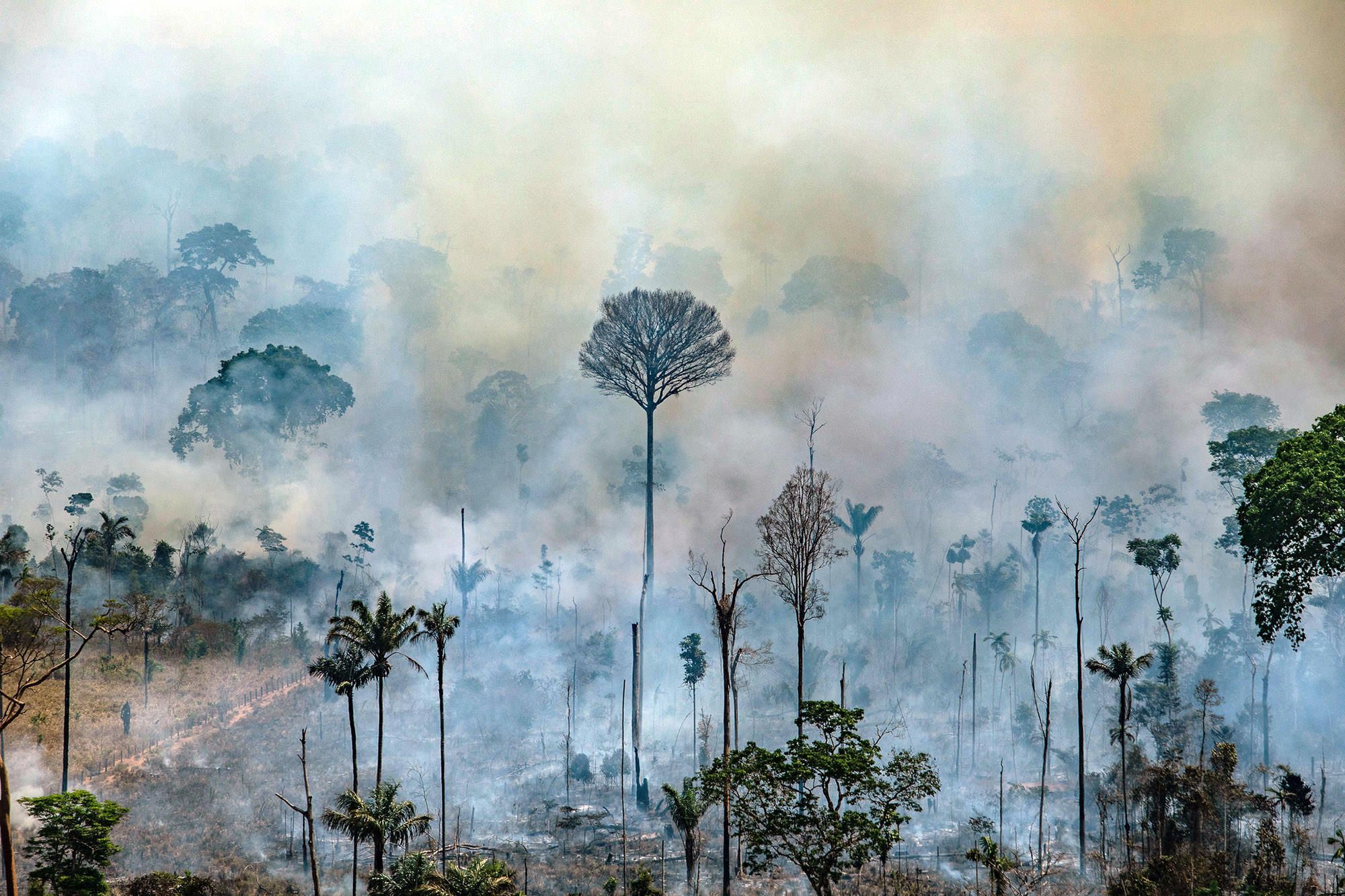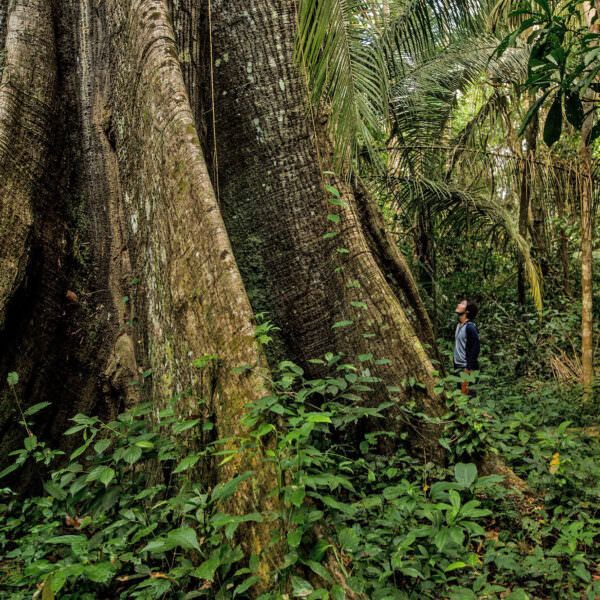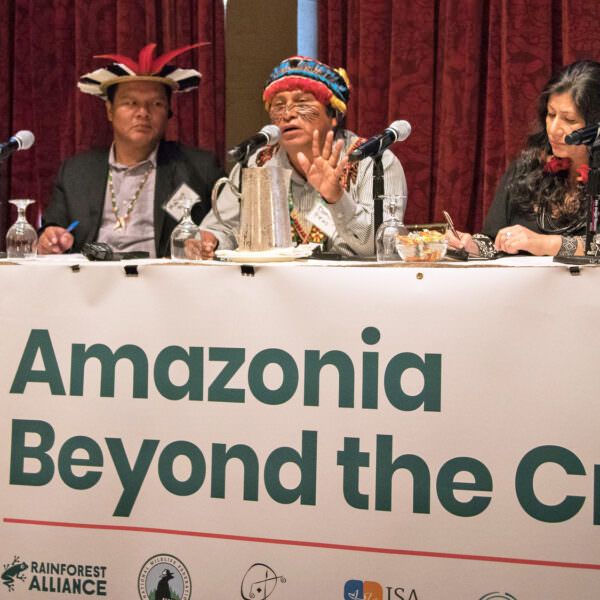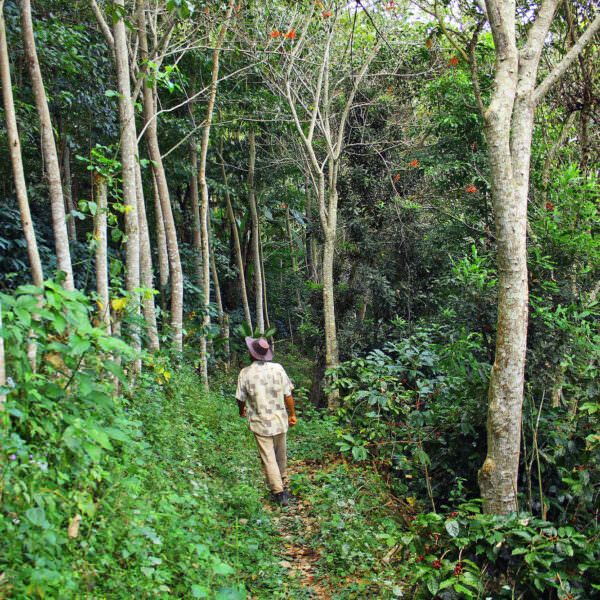The Rainforest Alliance's Work in Peru
Peru: Where indigenous knowledge, climate science, and global markets meet.
Home / Regions / South America / Page 12
Spanning nine South American countries and 7 million sq km (2.7 million square miles), the Amazon is the world’s largest forest and is home to more than 120 indigenous groups and one in 10 known species. One-fifth of all freshwater on the planet originates in the Amazon Basin. Unparalleled in its biodiversity, the Amazon is also critical to global climate stability.

Humans have razed some 20 percent of the Amazon rainforest over the last 40 years alone, and an additional 20 percent is at risk of being destroyed—a potentially catastrophic loss that would cause this vital ecosystem to unravel. Read our response to the forest fire crisis in the Amazon.
The most important impact of our work in high-risk regions of the Amazon—self-determination—is not quantifiable. However, we continually gauge the success of our approach by measuring both ecosystem health and the economic and social well-being of our partner communities.
![]()
in Brazil nuts exported from Madre de Dios, Peru
After working with the Rainforest Alliance for four years, communities in the Madre de Dios region of the Peruvian Amazon exported more than 4,000 metric tons of shelled Brazil nuts, representing a value of nearly US $31 million. Read the study
![]()
under sustainable management in South America
We’re working with forest communities, farmers, governments, and companies to conserve the Amazon Basin and protect its precious biodiversity. Together with our partners, we’ve brought 18 million acres (7.3 million hectares) under sustainable management.
This number includes Rainforest Alliance Certified agricultural land and FSC certified forest land, including land certified by our Brazilian partner, Imaflora. Data accurate as of March 21, 2018.
Stopping deforestation in the Amazon requires bold, multi-faceted strategies that center indigenous forest communities and support their self-determination. This approach characterizes our work in the Amazon, where we work with a wide range of communities and partners to cultivate a sustainable forest economy.

Peru: Where indigenous knowledge, climate science, and global markets meet.

Together with our allies, we have drafted a call to action to save the world’s largest and most important rainforest.

A family transformed their coffee farm into a resilient landscape—and improved their income.

The report summarizes the results of four studies conducted by Cenicafe, a Colombian coffee research institute. Streams were found to be healthier on certified farms, and certified farmers implemented a variety of best management practices at a higher rate than their non-certified neighbors.

This document profiles five major tourism businesses in Latin America that are working towards sustainability. Four hotels and one tour operator that have participated in the Rainforest Alliance’s sustainable tourism program present their main challenges and achievements, including their relationships with indigenous cultures, participation in community development activities, efforts to conserve biodiversity, and their inclusion […]

The Center for International Forestry Research created a methodology to disseminate information about the production and marketing of non-timber forest products (NTFPs) to improve the livelihoods of small, isolated landowners and promote biodiversity conservation in the Brazilian Amazon. With support from the Rainforest Alliance’s Kleinhans Fellowship, this project aimed to make market research available to […]

Understanding complex linkages between social and ecological systems and their resilience to external shocks is essential to promote the sustainable management of natural resources. This project, funded by the Rainforest Alliance’s Kleinhans Fellowship and directed by a graduate student researcher at the University of Florida, explored the resilience of Brazil nut (Bertholletia excelsa) production to […]

Company-Community Partnerships for Commercializing Non-Timber Forest Products in the Brazilian Amazon: Drivers, Problems, and Consequences Project Summary This project of the Universidade de São Paulo in Brazil aims to evaluate the motivations, opportunities, problems, and consequences of trade partnerships or agreements established between forest communities and corporations, for the commercialization of non-timber forest products (NTFPs). […]... Continue Reading

The Universidade de São Paulo in Brazil evaluated the motivations, opportunities, problems, and consequences of trade partnerships or agreements established between forest communities and corporations, for the commercialization of non-timber forest products (NTFPs). Ongoing corporate-community partnerships at both the community and corporate level were examined, as well as policies that could prompt beneficial impacts while […]